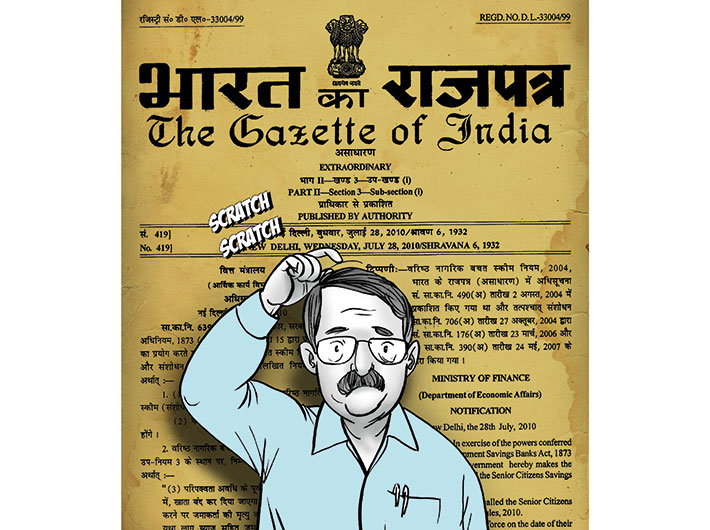After decades of waiting, the law is finally in place, and the anti-graft ombudsman is being set up. Here is a user’s manual
Over the years, several agencies looking at reforming governance in India have suggested that corruption and administrative inefficiency be addressed by establishing independent authorities to inquire into complaints against public officials. The Lokpal Bill was introduced in parliament on seven occasions between 1968 and 2011 but could not be passed each time. It is in this context that the 15th Lok Sabha will be remembered for addressing corruption in public life by enacting Lokpal and Lokayuktas Act.
This Act seeks to establish the lokpal as an independent body to look into cases of corruption. It empowers citizens to complain to the lokpal against corruption by public officials. The process by which the lokpal can ensure investigation and prosecution of cases of corruption by officials in a time-bound manner is also specified.
Now that the Act is being implemented, it is useful to understand how the law can be used by citizens.
Public functionaries against whom a complaint can be made to the lokpal
As per the law, any individual can complain to the lokpal regarding alleged corrupt acts of public officials. The law covers a wide spectrum of public officials, including those in the executive and the legislature. According to the Act, public officials against whom a complaint can be made include:
(a) current or former prime minister;
(b) union ministers;
(c) members of parliament (Lok Sabha as well as Rajya Sabha);
(d) all central government officers across ranks and categories, including those in public sector undertakings or other government organisations;
(e) officers in any organisation created by parliament (for example, the Reserve Bank of India, State Bank of India, Telecom Regulatory Authority of India etc.);
(f) officers in organisations receiving whole or partial funds from the government with a specific annual income;
(g) officers of organisations receiving funds of more than '10 lakh a year from a foreign source under the Foreign Contribution and Regulation Act. The lokpal can also inquire into any act of a person involved in abetting, giving or taking a bribe in relation to an allegation of corruption against any of the above public functionaries.
To improve transparency in public life, the law now requires every public official to declare his or her assets and liabilities, including those of his spouse and dependent children. In addition, every year the official has to declare and publish an annual return of the assets and liabilities with his or her supervisor. This information will be available on the organisation’s website.
Any complaint regarding alleged corruption by the chief minister of a state, his council of ministers, members of legislative assemblies or officials of an authority established by the state legislature cannot be submitted to the lokpal. The forum for complaints against them will be lokayuktas established in the state.
Types of offences for which a complaint can be made to the lokpal
While the term corruption is not defined under the Lokpal Act, complaints can be made regarding acts of corruption that are covered under the Prevention of Corruption Act, 1988. These include acts that amount to corrupt practices and misuse of power by public officials.
Typically, corrupt acts by a public official involve taking gratification for an official act, abusing one’s power, position, or personal influence to gain financial advantage or fraudulently appropriating funds.
If an individual wants the lokpal to inquire into an alleged act of corruption by a public official, he/she has to ensure that the complaint is made within seven years of the alleged offence being committed. The lokpal cannot inquire into an allegation of corruption against an MP if it relates to anything said by him or her in parliament or a parliamentary committee. While a complaint maybe made, the lokpal cannot inquire against a prime minister in matters concerning foreign relations, security, and public order. However, an exception can be made if all members of the lokpal approve of it.
The form and manner of a complaint and the information to be provided to the lokpal has not been provided in the Act passed by parliament. The central government has the responsibility of drafting rules of making a complaint.
In order to protect honest public officials, the law seeks to deter individuals from filing false and frivolous or vexatious complaints. For any such complaint made, the complainant can be penalised with imprisonment for one year and a fine of up to '1 lakh. The court may also determine the compensation to be paid by the complainant to the public official, in addition to the legal expenses incurred by him. The website of the lokpal should also provide information to the public on the status and number of complaints pending and those disposed of by it.
Investigating complaint against a public official
The Lokpal is a body of up to nine persons appointed by the president. The agency will be composed of experienced members of the judiciary and can also include individuals who have expertise in vigilance, public administration, anti-corruption policies etc. The lokpal will be based in New Delhi but can also set up benches in other parts of the country.
Once a complaint is made against a public official, it is the responsibility of the lokpal to set in motion a process of inquiry and investigation into the claims of the complaint. For this purpose, the lokpal can engage its inquiry officers or an agency like the central bureau of investigation (CBI) to determine whether the alleged offence was committed. When investigations are being made, the law requires that the lokpal obtain comments from the accused official and his supervisor on matters addressed in the complaint. If the accused official requests for legal assistance to defend his case before the lokpal, provisions have to be made for the same.
If the complaint relates to government officials across all ranks of the bureaucracy, the lokpal will refer the matter to the central vigilance commission (CVC). The current CVC is an independent commission that investigates corruption cases in the central government. The number of government officials under the jurisdiction of the CVC is estimated to be about 30 lakh across different ranks and categories.
Typically, an investigation into the alleged act has to be completed within 60 to 90 days, following which a report is to be submitted to the lokpal. After the agency submits this report to the lokpal, the lokpal will give an opportunity to the public official to present his view on the matter.
Prosecuting a public official for corruption
After the investigation report is submitted, if the lokpal is of the view that the public official did not commit the alleged offence, the proceedings against him will be closed. This will be followed by action against the complainant for filing a false and frivolous or vexatious complaint against the public official.
If the lokpal is of the view that the public official committed the corrupt act, it can either order a more detailed investigation or initiate departmental proceedings against him or file a charge-sheet or closure report before the court.
To facilitate trial of corruption cases in a timely manner, the law provides for enhancing the number of courts that can hear and decide corruption cases. All trials in courts constituted for this purpose have to be completed in one year, extendable by two years.
A convicted public official can be imprisoned for a term of two to seven years. In addition, if a public official is convicted of corruption by the court, he may have to compensate for any loss caused to the public exchequer due to his actions or decisions.
Addressing citizen’s grievance against administrative inefficiency
The Lokpal and Lokayuktas Act addresses corruption in public life but does not provide for redressal of citizen’s complaints against inefficient and deficient delivery of services by government officials. The Citizen’s Charter Bill, 2011, currently pending in parliament, requires that every public authority publish a charter of goods and services they are responsible for providing to citizens, the quality of services and time period within which they are to be provided. Any citizen can complain regarding failure in delivery of these services, the functioning of the specific authority, and violation of any law or policy. The bill sets up a mechanism by which such grievances will be addressed and prescribes penalties for government officials that default or act negligently.
With the last session of the 15th Lok Sabha currently under way, there is an ambitious plan to pass a slew of anti-corruption legislation in addition to the Citizen’s Charter Bill. These bills address mechanisms to:
(i) protect whistleblowers;
(ii) enforce judicial standards and accountability;
(iii) create transparency in procurements made by the central government;
(iv) criminalise giving of bribes to public officials; and
(v) criminalise bribery among foreign public officials and international organisations.
Of the six bills currently pending in parliament, five are at the risk of lapsing if not passed within this session of parliament. This means that while headway may have been made with the enactment of the Lokpal Act, efforts to address other legislative gaps in governance and corruption will drift off parliament’s agenda.

